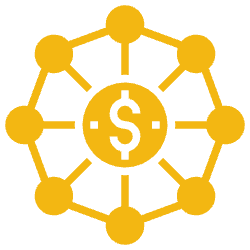Blockchain technology, often associated solely with cryptocurrencies, has rapidly evolved beyond its initial conception. Blockchain is a distributed ledger system that securely records transactions across multiple computers. Its decentralized nature ensures transparency and immutability, making it suitable for diverse applications beyond finance.
1. Supply Chain Management
One of the most impactful use cases of blockchain is in supply chain management. By utilizing blockchain, companies can trace the journey of products from raw materials to finished goods. This transparency helps in verifying authenticity, ensuring ethical sourcing, and combating counterfeiting.
2. Financial Services and Banking
While cryptocurrencies like Bitcoin brought blockchain to the limelight, traditional financial services are increasingly adopting blockchain for faster and more secure transactions. Blockchain enables quicker cross-border payments and reduces transaction costs, revolutionizing the banking sector.
3. Healthcare
In healthcare, blockchain enhances security and privacy of patient data. Medical records stored on blockchain are encrypted and accessible only to authorized personnel, ensuring confidentiality and preventing unauthorized alterations.
4. Voting Systems
Blockchain has the potential to transform voting systems by providing secure and tamper-proof digital voting platforms. This can significantly reduce fraud and enhance trust in electoral processes, ensuring accurate and transparent elections.
5. Smart Contracts
Smart contracts are self-executing contracts with terms directly written into code. They automate and enforce agreements without intermediaries, reducing costs and increasing efficiency across various industries such as real estate, insurance, and legal sectors.
6. Digital Identity
Blockchain-based digital identity solutions offer a secure and decentralized way to manage identities online. This technology can streamline identity verification processes, prevent identity theft, and enable secure access to services.
7. Intellectual Property Protection
Blockchain can revolutionize intellectual property (IP) management by creating immutable records of ownership and origin. Artists, authors, and creators can use blockchain to timestamp their work, proving ownership and protecting against plagiarism.
8. Energy Management
In energy management, blockchain facilitates peer-to-peer energy trading and transparent tracking of energy sources. It supports the shift towards renewable energy by enabling efficient trading and utilization of resources.
9. Real Estate
Blockchain innovations in real estate include property sales, title transfers, and streamline rental agreements. Blockchain reduces paperwork, minimizes fraud, and speeds up transactions, making property transactions more secure and efficient.
10. Charity and Aid Distribution
Blockchain enhances transparency and accountability in charity and aid distribution by providing donors with visibility into how funds are utilized. Smart contracts can automate donations, ensuring funds reach intended beneficiaries promptly and securely.
Conclusion
In conclusion, blockchain technology is reshaping industries beyond cryptocurrency, demonstrating its versatility and potential to disrupt various sectors. From supply chain management to healthcare, voting systems to real estate, blockchain offers secure, efficient, and transparent solutions. As this technology continues to evolve, its impact on global business and society will undoubtedly grow, driving innovation and efficiency across diverse applications.

